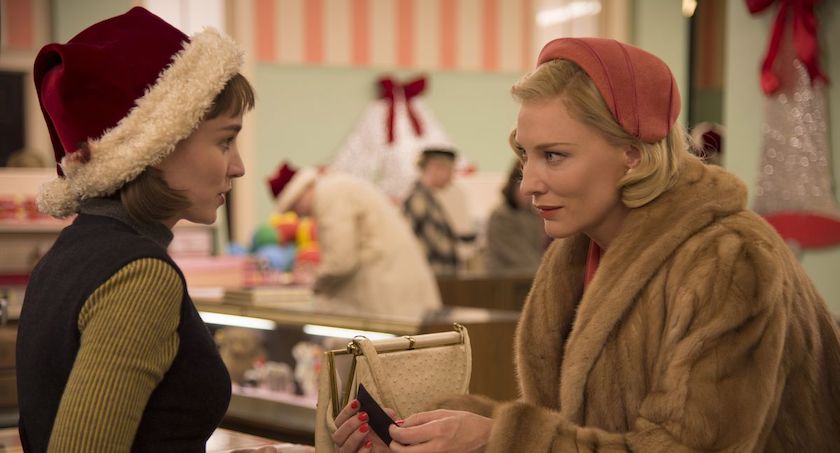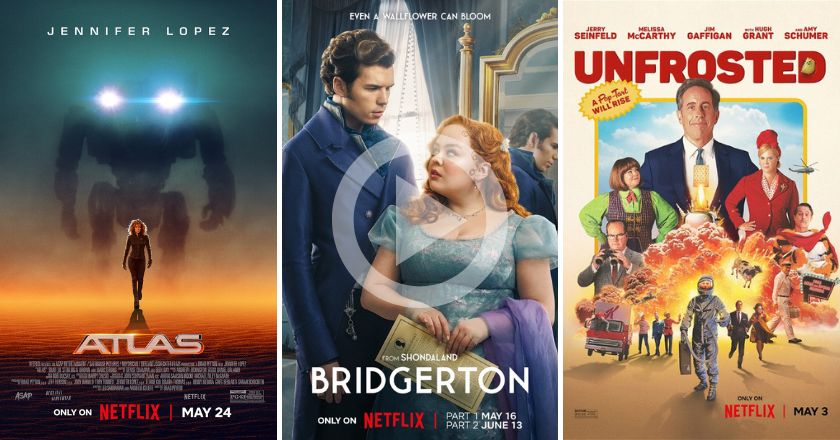
[Review by Matthew Lowe.]
Department store clerk Therese (Rooney Mara) meets Carol (Cate Blanchett) when she comes in to buy a toy for her young child. Carol is unhappily married, soon to be divorced; Therese is one half of a passionless relationship. Their exchange strikes a mutual chord and their burgeoning desire encourages them to leave their partners. Because reality is unkind, however, their relationship, plagued by the outside pressures to which they are expected to conform, soon begins to crumble under the strain.
It would be difficult to call Todd Hayne’s new picture Carol a happy film because, ultimately, its nature is fatalistic. Nevertheless, what pervades it throughout is a sentimental air, a nostalgia for the 1950’s past which constitutes its setting. On one hand, the time frame is rife with sexual, and particularly female, repression, a marital cloistering wherein the priority of women was deigned to breed, cook and keep a house, a time where deviations from the heteronormative white narrative were not tolerated by mainstream society. Yet in spite of this nostalgic quality, the film’s enviable quality is its straightforwardness depicting human relations and emotional exchange.
There is an implication that we have become unnecessarily encumbered with all manner of baggage, social and technological, even as we sought mightily to remove ourselves from the particular baggage of a different space and time. And this is part of the appeal of period filmmaking – exemplified very well by Mad Men say, and here by Carol. Removed of so many post-internet societal trappings, the onscreen exchanges take on a quality of simple directness, wherein 21st century interference is drastically reduced.
Carol is not necessarily a strong film from a narrative perspective. Its narrative line is relatively minimal and, if you will, predictable as a result. Yet this quality does not prove a hindrance because if the narrative lacks, the qualities that colour it – the shades and subtexts – are where it excels. Mara and Blanchett are wonderful leads, their ability to imbue their speech and their actions with feeling and suggestion come only from physical embodiment and not from what appears on scripted paper. The realness and deep feelings embedded within their interactions are ultimately compelling in their visceral directness.
Furthermore, it helps that Todd Haynes is a very empathetic director both of women (see Far From Heaven, Safe, Superstar: The Karen Carpenter Story) and of same-sex inter-relations. His direction is deft throughout, visually exquisite, while he also has the good taste and intelligence to let his subject(s) speak for itself without imposing or inserting himself into the picture. And while it does lack the novel quality of some of his work, such as Poison or I’m Not There, or the manic colour of Velvet Goldmine, it does fit very respectably into the oeuvre of a highly underrated auteur.
Carol is an overall excellent film, functioning both as a doomed love story and as a bittersweet memory plucked from an unconscious past.








